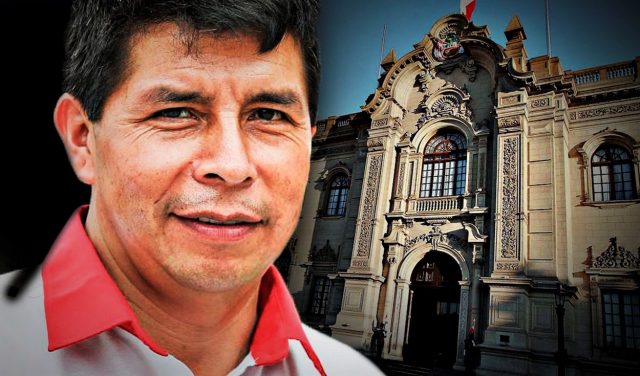In a tight general election that was held last Sunday in Peru, the candidate Pedro Castillo unexpectedly positioned himself as the most voted candidate among 18 candidates. The protagonist of the qualified electoral ‘surprise’ is a left-wing teacher and unionist who did not seem at all likely to be among the favorites, so much so, that some television stations did not even have his photo at hand when they gave the first electoral results.
Although the final data is not yet known, this 51-year-old union member did not manage to transfer half plus one of the points necessary to win in the first round, he secured himself a place in a probable second ballot. The rival would be defined between the economist Hernando de Soto (Avanza País) and the businesswoman Keiko Fujimori (Fuerza Popular), according to the official count of the National Office of Electoral Processes (ONPE), indicates a report by RT.
«Today, the blindfold has been taken off the Peruvian people. We have been told that political scientists, constitutionalists, and scholars can lead a country; they have had enough time, tremendous space, decades and decades, and look at how they leave the country», said the virtual winner of the first round, in a brief speech from Cajamarca.
Castillo’s leadership surprises a country in which the indecision and lack of trust in political leaders, many of whom face accusations of corruption, reflected a contested and unpredictable scenario. In previous polls, Castillo was last among seven candidates who arrived with chances of entering a second round. The same polls showed that close to 40% of the citizenry had not defined its choice or thought to cast a null vote.
The candidate who prevails will replace in the middle of the year the man who heads the self-styled «transition and emergency government», former congressman from the Morado Party (center-right) Francisco Sagasti, fourth head of State in the last 5 years.
A school teacher
No one saw him coming. The phrase is repeated this Monday in the Peruvian press and in the analyses of the political left agglutinated around Verónika Mendoza, from Juntos por Perú. “Impressive Castillo’s vote in the Andean regions. There is an irruption of the popular world most postponed», wrote former Congressman Sergio Tejada about the lessons received from the vote.
Unlike the vote in Lima, which especially favored the most conservative sectors of politics, the vote that accompanied Castillo came from the province. The result is not fortuitous, since the candidate decided to concentrate his campaign efforts in the opposite direction: from the countryside to the city.
In fact, Castillo obtained a higher percentage of the vote than the rest of the candidates in Cajamarca, Apurímac, Ayacucho, Huancavelica, and 13 other regions, where there are high levels of poverty and needs historically postponed by governments.
Of humble origin, Castillo usually wears a white hat covering his head and on Sunday he had a bad time, when the mare on which he rode to his polling place was disturbed by the crowd of supporters who came to greet him.
He was born in 1969, in the town of Puña in the department of Cajamarca, northwest of Peru, province of Chota. During his youth, he was a member of the peasant ‘rondas’, community organizations that aim to protect the rights, development and security of rural populations.
A primary school teacher in his town of Puña since 1995, this union and political leader received a bachelor’s degree in education from the César Vallejo University, where he also obtained a master’s degree in Educational Psychology.
As a teacher, he has led the educators’ strikes that lasted from June to September 2017, demanding better wages, increases in the sector’s budget, among other demands. In 2002, he began his political career when he competed for a place in Congress for the Perú Posible party, a space that brought economist Alejandro Toledo to the presidency (2002-2006), and who disappeared after a series of accusations of corruption.
Castillo is also one of the eight presidential candidates who does not face criminal proceedings against him. That ‘quality’ allowed him to head the nomination of his party to replace the natural aspirant of that political space, Vladimir Cerrón, who finally could not appear because he faces a 4-year prison sentence for corruption.
Pedro Castillo’s proposals
In his government plan, the union leader Pedro Castillo proposes to modify the Political Constitution of the country through a Popular Assembly and eliminate the Constitutional Court – the highest instance of interpretation of the ‘Magna Carta’ -, since, at the discretion of the candidate, this entity «it only serves to defend macro and grand corruption».
In addition, he intends to strengthen the peasant ‘rondas’ by granting them a larger budget.
With a socialist ideology, the representative of Perú Libre raises the need to carry out an economic reform with greater State intervention. His objective is to nationalize companies in key sectors for the economic sovereignty of the country, such as mining, oil, hydropower, gas and communications.
«The riches of our Perú will stay in Perú for the benefit of our People», he often repeats.
“We currently live in an apparently renewed capitalist system, in an economic neoliberalism, called the Social Market Economy, imposed since 1993 and since then it has gone against the interests of the great majority of the country. To change this sad reality, it is necessary to propose adjustments in the economic field, most drastically», says the party’s electoral platform, which aims to establish a «popular economy with markets».
As the Perú Libre government plan clarifies, an eventual management of Castillo would not be against private activity «as long as it is translated for the benefit of the majority of the Peruvians».


